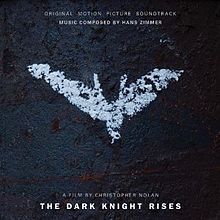Despite the high standards set by Nolan for himself after ‘The dark knight,’ TDKR is a decent finale to the trilogy. Nolan’s persistent obsession to cram more and more into his plots doesn’t work out as smoothly as in ‘TDK,’ but still it holds together, at least in the second half. There is a marked improvement in the direction of action scenes. This time, he gets all most all of them right.
Yeah, characters still talk more about ideological issues than pass on actual information. But anyway, that comes with the ‘Nolan brand.’ It is part of the fun. You are always more emotionally invested if thematic conundrums are presented through the characters. But despite being a Nolan fan, with each movie, his narrative tricks are becoming a little (disappointingly) familiar for me.
(Spoilers) The moment Alfred talked about the ‘wish’ he had in Florence, I could guess what the last scene of this movie would be. The initial attention and time Nolan gave to the Wayne/Selina Kyle chemistry somehow gave away ‘the anonymous trigger-man.’ Because Nolan always likes to tie up the loose ends. And sometimes Nolan uses the same plot trick a little too often. His favourite is making Batman/Wayne disappear for a little too long and then making his return a big emotional event for Gotham and the audience. He does it in Batman begins and he does it twice in TDKR.
But what is making me more worried is that I am seeing more fissures in the logical fabric of the whole Batman universe. Sometimes the manipulation of the writer to make a point becomes a little too apparent. That is most obvious with the Gotham public’s attitude and reactions especially towards Batman. It shifts and turns according to the needs in the story. Bane’s decision to punish Gotham for 4-5 months with the revolution before detonating the bomb was also a little sketchy. It was understandably a plot device to give Batman enough time to heal himself and come back. But the issue is, was it a real punishment for Gotham where 99% is anyway supposed to be poor? They were actually having a blast by looting and prosecuting the 1% rich till Batman returned. Another thing is that Nolan comes up with all these convenient philosophical tidbits as per requirement. In the pit, Wayne tells the doctor’,I don’t fear death.’ The doctor tells him that he should fear death to do better. Now Wayne is able to clear the jump without a rope because it helps him to have fear. So the question is, if Wayne was not really afraid of death in the first place, how would the presence or absence of rope really matter?
Regarding the Bane vs Joker question, I think Nolan took a clever decision. The Riddler would be too similar to Joker. With a villain who doesn’t even have a face, there is not much scope for comparison or repetition. Joker is one of those divine ideas that fall into your lap. It won’t happen every day, even for Nolan. When it happens, you make the most of it and move on- rather than artificially trying to make it happen again and fail miserably.



